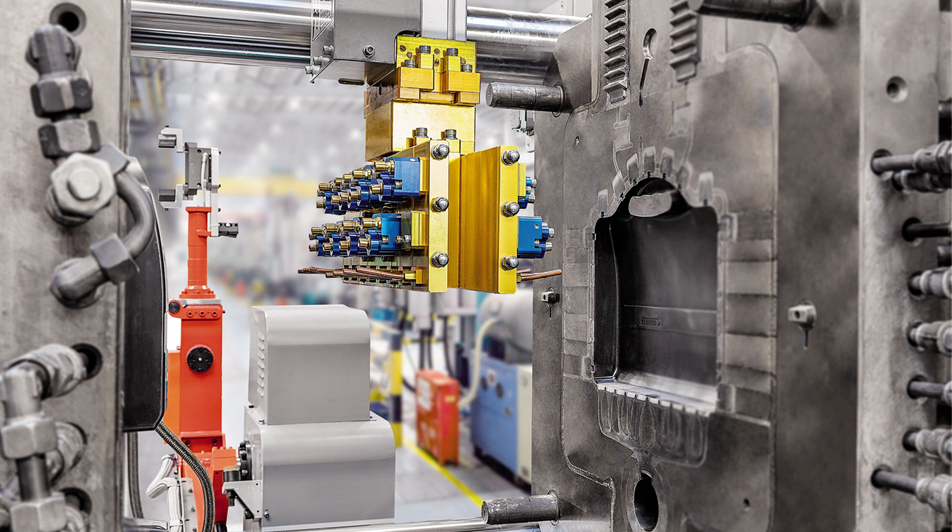Introduction
In the modern world, where technology is constantly advancing and industries are striving for better performance, finding lightweight solutions has become crucial. Magnesium casting has emerged as a game-changer in various sectors due to its exceptional properties and advantages over conventional materials. With its low density, high specific strength, and excellent thermal and electrical conductivity, magnesium casting offers enhanced performance and opens up new opportunities in industries such as automotive, aerospace, and electronics. This article explores the benefits and applications of magnesium casting, highlighting its potential as a lightweight solution.
Advantages of Magnesium Casting
1. Lightweight: One of the most significant advantages of magnesium casting is its low density. At only 1.74 g/cm³, magnesium is one of the lightest structural metals available. This property makes it an ideal choice for industries that prioritize weight reduction, such as automotive and aerospace.
2. High Specific Strength: Despite its low density, magnesium exhibits excellent strength-to-weight ratio. Its specific strength is higher than aluminum, steel, and even some plastics. This unique combination allows for the design of lightweight and efficient components that withstand high loads.
3. Excellent Thermal Conductivity: Magnesium has exceptional thermal conductivity, allowing for effective heat dissipation. This property is particularly beneficial in applications where temperature control is critical, such as electronic devices and powertrains. By efficiently dissipating heat, magnesium casting ensures improved performance and longevity of components.
4. Good Electrical Conductivity: In addition to its thermal conductivity, magnesium also possesses good electrical conductivity. This characteristic is advantageous in electrical and electronic applications, enabling efficient electricity flow and minimizing energy loss.
Applications of Magnesium Casting
1. Automotive Industry: The automotive industry has embraced magnesium casting due to its lightweight nature. By replacing heavier materials with magnesium components, vehicles can achieve significant weight reduction, resulting in improved fuel efficiency and reduced emissions. Magnesium casting is commonly used in engine blocks, transmission housings, and structural components, contributing to overall vehicle performance and sustainability.
2. Aerospace Industry: Magnesium\’s low density and high specific strength make it an attractive material for the aerospace industry. By utilizing magnesium casting in aircraft and spacecraft, manufacturers can reduce weight and increase payload capacity. This advantage translates to enhanced fuel efficiency, reduced operational costs, and improved maneuverability.
3. Electronics and Telecommunications: The electronics industry benefits greatly from the thermal and electrical conductivity of magnesium casting. Electronic devices often generate heat, which, if not dissipated properly, can lead to reduced performance and premature failure. Magnesium casting helps in efficiently dissipating heat, ensuring optimal performance and reliability of electronic components.
4. Sports and Recreation: Magnesium casting is also making its mark in the sports and recreation sector. Lightweight magnesium alloys are utilized in the production of sporting equipment such as bicycles, golf clubs, and tennis rackets. These magnesium components provide athletes with better handling, improved maneuverability, and increased power transfer.

Conclusion
Magnesium casting offers a lightweight solution for enhanced performance in various industries. With its low density, high specific strength, and excellent thermal and electrical conductivity, magnesium is revolutionizing the way we design and manufacture components. The automotive, aerospace, electronics, and sports sectors are just a few examples where magnesium casting is making a significant impact. As technology continues to evolve, magnesium casting is likely to play an even greater role, enabling further advancements and pushing the boundaries of performance.
-

- Kolesarski deli in komponente iz magnezijeve zlitine za otroška potisna kolesa
-

- Otroško kolo iz magnezijeve aluminijeve zlitine, 3-8 let, poceni, vroča prodaja, 14-palčno otroško kolo ZA VEDNO, veleprodaja 2022
-

- Deli za livarno magnezija Volanski drog
-

- Izdelana srednja plošča za Macbook po meri izdelanih kovinskih delov
-

- Prilagojeni deli in komponente za tlačno litje
-

- Tlačno uliti deli in komponente OEM

 0086-750-5616188
0086-750-5616188 +86 13392089688
+86 13392089688 sales@zhongmei-tech.com
sales@zhongmei-tech.com







